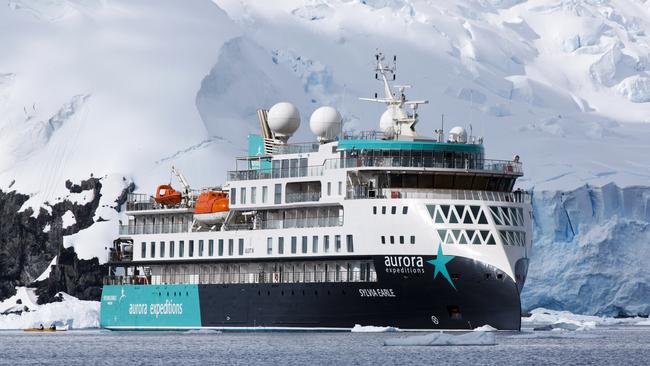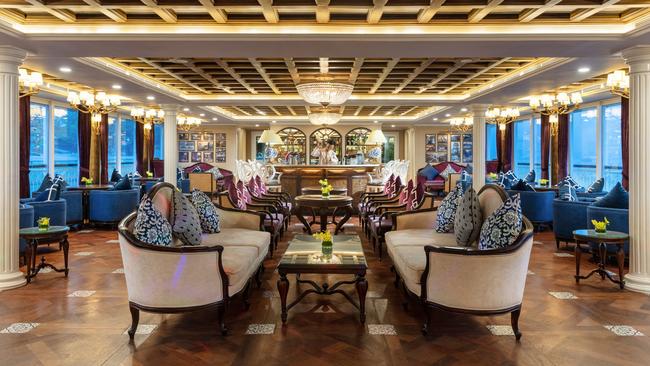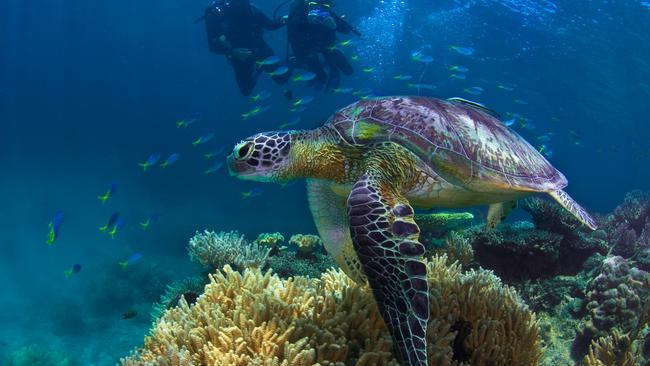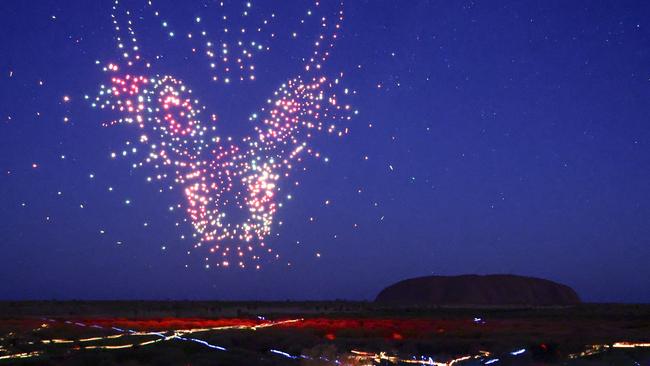Eco-travel trends for 2023
An increasing number of hotel groups, cruise lines and tour operators are laying their eco-credentials bare.

Destination DC president and chief executive Elliott Ferguson doesn’t mince words when it comes to his country’s eco-credentials. “I’d give our country a ‘D’ as pertains to sustainability,” he said on a recent visit to Sydney to spruik eastern US cities including his own, Washington DC. “We have a lot of work to do.”
Industry veterans noted Ferguson’s unusual frankness. Perhaps he was emboldened by the fact Washington DC was the only US city to participate in the 2022 Global Destination Sustainability Index, topped by Gothenburg, Sweden. Of the three Australian cities, Melbourne beat Sydney and Brisbane.
In a world of greenwashing, particularly when it comes to the multibillion-dollar business of tourism, his type of honesty is rare. Yet in Australia, travel companies are increasingly putting their sustainability efforts out there on the record, setting goals and welcoming more scrutiny and accountability.

In July, The Travel Corporation Australia chief executive David Hosking presented the company’s Impact Report to travel media. The report charts the progress of the company’s 40 brands, which include Uniworld, Insight Vacations and Red Carnation hotels, against 11 sustainability goals set in September 2020. Those goals include cutting food waste across all hotels and ships by 50 per cent, and sourcing 50 per cent of electricity from renewable sources, both by 2025.
Its big ambitious new goal is to reach net-zero greenhouse gas emissions across the value chain by 2050. “The travel industry has a carbon footprint and international travel has a more significant carbon footprint, so we understand … the scrutiny that increasingly is placed upon our industry,” says Hosking.
Last year, TTC swung away from using carbon offsets to focus instead on reducing emissions as the most effective way of addressing climate change. “Too much reliance on (carbon offsets) I think can look like greenwashing,” says Hosking. The new goal is financed by the family-owned company’s Carbon Fund, while its near-term, long-term and net-zero targets have been validated by the Science Based Targets initiative (SBTi), a partnership of organisations driving climate action in the private sector.

Experience Co, an adventure tourism company with “mild to wild” brands such as Wild Bush Luxury, Dreamtime Dive and Snorkel, and Skydive Australia, issued its first sustainability report in February, focusing on its Tropical North Queensland businesses. Executive director John O’Sullivan says because many of its operations in the region, such as Fitzroy Island Adventures, operate on the ecologically sensitive Great Barrier Reef, sustainability is “an inherent part of our businesses”. It’s also a subject people are asking more questions about.
“Our investors want to know what we’re doing in that space,” he says. “Across corporate Australia, there’s been a rise in ESG (environmental, social and governance) reporting. It was a culmination of that becoming more prevalent now for companies like ours and choosing a business unit and putting it down on paper to see what it actually looks like.” The unit’s progress will be evaluated again next February, examining issues such as the outcomes of waste recycling trials.
As O’Sullivan, a former managing director of Tourism Australia, notes, this transparency dovetails with recent TA research showing more than 75 per cent of travellers are committed to sustainability in some way. TA’s Future of Global Tourism Demand report, released in November, said: “Sustainability is increasingly influencing traveller choices in terms of where to go, how to get there, where to stay and which experiences they engage with at the destination. However, it is not always easy for travellers to recognise sustainable options.”

Many sustainability initiatives simply aren’t visible to travellers who don’t have the time or inclination to pore over these reports – or know of their existence. Eco-anxiety might be running high but most travellers lining up for a skydive, for instance, wouldn’t realise that during the last financial year, Experience Co sent 272kg of old parachutes, harnesses and uniforms to Upparel, a textile recycling company, instead of to landfill.
Another travel company laying its sustainability efforts bare is Aurora Expeditions, an expedition-cruise operator with two ships that carry an average 132 passengers. In July, it released its first impact report, a review of sustainability efforts to date. Like TTC, Aurora is using the United Nations’ 17 Sustainable Development Goals as guideposts for its strategy.
Chief marketing officer Hayley Peacock-Gower says the company, which has been certified climate-neutral by South Pole since 2021, wanted to release the report for several reasons. “We take passengers to some of the most fragile and untouched parts of the world and we do recognise that it’s our responsibility to protect these important ecosystems,” she says. “We wanted to provide a comprehensive review of all of our efforts ... and sustainable practices across all areas of the business. It’s acknowledging the steps we’ve taken to date but there’s more work to do, of course. We want to share our learnings, share what we’re doing, acknowledge the improvements we need to make and acknowledge our impact.” As the reports continue to be released annually, she expects them to evolve to include more measurable outcomes and KPIs.
Some of Aurora’s more unusual sustainability innovations include embedding sustainability KPIs into every employee’s position. “We want every person in the business to contribute,” Peacock-Gower says. Aurora also acknowledges there’s more work to do in decarbonising operations, developing more efficient fuel usage by putting ships’ speeds and routes under a microscope, and adding more regional suppliers to supply chains. One initiative passengers would notice on Sylvia Earle – the ship named after the noted US ocean conservationist – is that on day six, no seafood is served on board. “We’ve had a really good reaction to it,” says Peacock-Gower. To help preserve the ocean’s food chain, “top predators” such as tuna and swordfish have been cut from ship menus.
Peacock-Gower acknowledges there’s much more to do as an industry. “We do believe it’s a collective effort. I think operators are really starting to understand they have a real role to play, particularly with the destinations we go to, so there’s more sharing of information than ever ... there’s more to do but it’s certainly stepping in the right direction.”
As for larger cruise lines with larger fleets of larger ships, she hopes they’re watching and learning from what veteran expedition cruise lines are doing in the sustainability area. “If they were to look to us as an example, that would be good – and if they build in education as part of their programs for their passengers, that will help as well,” she says.
MORE TO THE STORY
Thanks to rising concerns about air and environmental pollution, as well as mitigating fire risk, the use of drones and lasers – instead of staging firework spectaculars – is gaining traction. In the US this year, cities such as Los Angeles, Salt Lake City, Boulder and North Lake Tahoe celebrated the Fourth of July with a hi-tech light show instead of traditional fireworks. With rapid advances in drone technology, eco-friendly shows are also becoming attractions in their own right. In Australia, the Wintjiri Wiru display (pictured above) that launched near Uluru in May is the world’s largest permanent drone show.

To join the conversation, please log in. Don't have an account? Register
Join the conversation, you are commenting as Logout